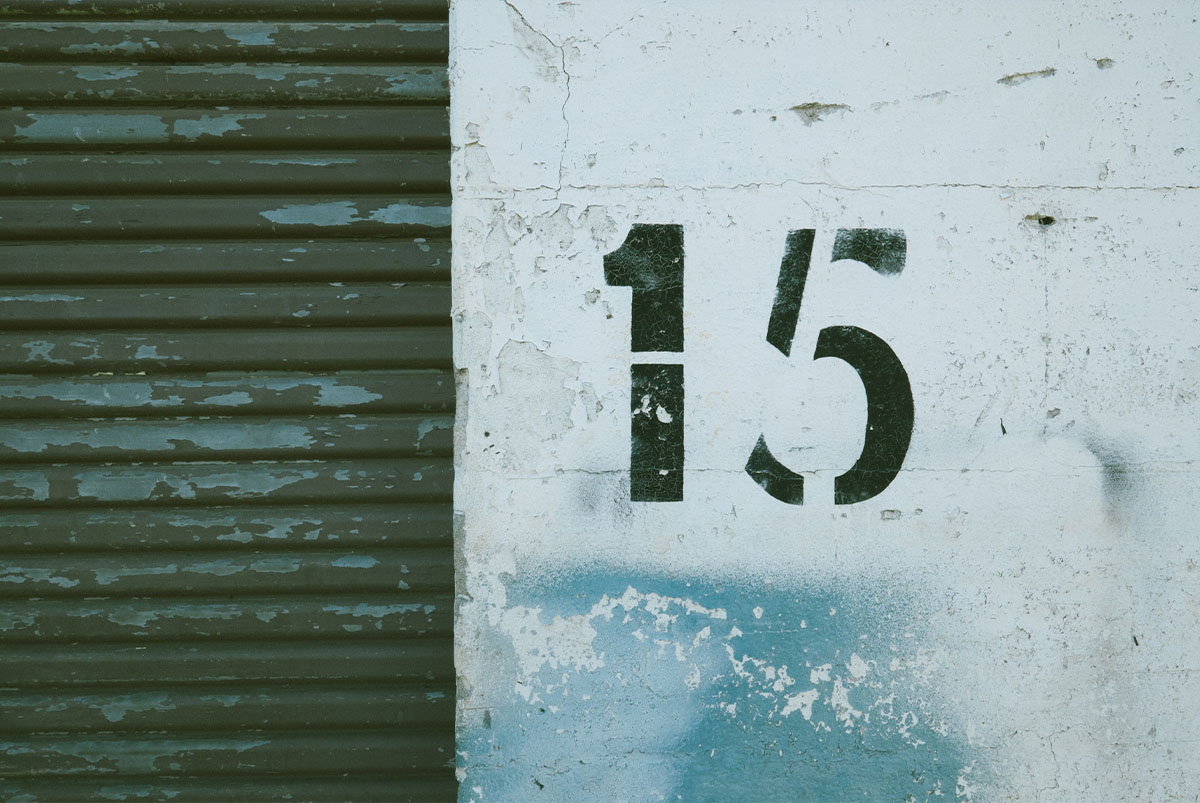Ready To Buy a Home?
Get Approved to Buy a Home
Rocket Mortgage® lets you get to house hunting sooner.
Mortgages come in a variety of proverbial flavors. There are short-term mortgages, long-term mortgages, mortgages with variable rates and mortgages with fixed rates. The varieties are endless – and as anyone who has spent time in an ice cream shop knows – it can be challenging to decide on the flavor you want.
If you’re looking for a loan with a longer repayment term and lower interest rate, a 15-year fixed-rate mortgage might hit your sweet spot.
Do you want to buy a house – but don’t want to lock yourself into a 30-year commitment to pay it off? A 15-year fixed-rate mortgage can speed up the process of paying off your home loan and potentially save you tens of thousands of dollars while you’re doing it.
How Does a 15-Year Fixed Mortgage Work?
With a 15-year fixed mortgage, your interest rate and monthly payment stay the same over the life of the loan. Fixed-rate mortgages don’t work like variable-rate mortgages. With variable-rate mortgages, interest rates can change (increase or decrease) over time.
Borrowers usually look at 15-year mortgages because they want their homes paid off quicker, want to take advantage of lower interest rates or want to take advantage of both.
Lower interest rates save you money in the long run because you pay less interest over a shorter repayment term. And because your monthly payments are predictable, you can easily incorporate this unchanging line item into your household budget.
But a 15-year fixed mortgage’s condensed payoff timeline will likely result in higher monthly mortgage payments – higher than you’d pay with a longer-term loan, like a 30-year fixed mortgage.
A 15-year fixed mortgage is a good option for borrowers who want to pay off their mortgage sooner. It’s a big financial commitment, but you would be debt-free faster than you would with a 30-year mortgage.
Advantages of a 15-Year Mortgage
There are several advantages to getting a 15-year fixed mortgage.
Your payments don’t change
Your interest rate and monthly payments are locked in for the life of the loan. Your monthly mortgage payment will never change, no matter what is happening in our economy with market interest rates.
You pay less interest overall
A shorter loan period means fewer payments. And fewer payments mean you pay less interest over the life of the loan, potentially saving tens of thousands of dollars in interest.
Let’s say you took out a 30-year fixed-rate mortgage for a $250,000 mortgage with a 4% interest rate. Your monthly payments would be about $1,194, and you’d pay a total of $179,840 in interest.
If you took out a 15-year fixed mortgage for the same amount and interest rate, your monthly payments would be about $1,849, and you’d pay a total of $82,820 in interest. That’s over $97,000 in savings with a 15-year mortgage.
Yes, you’ll make higher monthly mortgage payments with a 15-year mortgage. But if you can comfortably afford it, the long-term savings may be worthwhile.
You could get a lower interest rate
Lenders offer lower interest rates on 15-year mortgages because they are lending money that is repaid over a shorter length of time.
If you qualify for a low interest rate, a 15-year mortgage can help you save money in interest over the life of the loan.
You build home equity faster
A shorter loan term means you’ll build home equity faster because you’re putting more money towards principal each month than you would with a 30-year mortgage.
Home equity is the portion of your home’s value you own outright. The larger payments you make, the more house you own.
Disadvantages of a 15-Year Mortgage
While 15-year mortgages have many advantages, there are a few disadvantages to explore.
Your monthly payments will be higher
The biggest downside to a 15-year mortgage is the higher monthly payments. The most popular mortgage in the U.S. is the 30-year fixed-rate loan. With a 15-year loan, you’re paying off your mortgage in half the time, which will hike up your monthly mortgage payments.
Circling back to our previous example, the monthly mortgage payment for a 15-year fixed $250,000 mortgage with a 4% interest rate would be $1,849. You’d pay almost $700 more every month than you would with a 30-year fixed mortgage, which would be $1,194.
Your home purchase amount may be lower
With a shorter loan term, you’ll probably be approved for a lower loan amount.
Lenders need to be sure you can handle a 15-year fixed mortgage’s higher monthly payments. As a result, you may not be able to afford as much house as you would with a 30-year mortgage.
It can be harder to save for other expenses
Your larger monthly mortgage payments may leave you with less money to save or spend on emergencies, retirement or other financial goals. It’s in your best interest to ensure you can comfortably afford the higher payments before you take out a 15-year mortgage.
How To Get a 15-Year Fixed Mortgage
If you’re interested in a 15-year fixed mortgage, there are a few things you’ll need to do:
1. Check your credit score
Your credit score is one of the most critical factors for mortgage approval – so check your score before you apply. If your score is below 620, you may have trouble qualifying for a 15-year mortgage.
2. Shop around for lenders
Shop around until you find a lender that offers what you want. Once you find a few lenders, compare interest rates, fees and loan terms.
3. Get preapproved for a mortgage
Once you find a lender(s), the next step is to get preapproved for a mortgage. The step is optional. But if you want a better idea of how much you can borrow and your estimated monthly payments, this is a crucial step.
4. Apply for the mortgage
If you’re happy with the loan terms, the next step is to apply for the mortgage. Be prepared to submit:
- Your W-2 forms or tax returns for the past 2 years
- Your most recent pay stubs
- Your bank statements from the past few months
- Proof of other forms of income, including child support or alimony
- Your driver’s license or other forms of ID
5. Close on the loan
Once your loan is approved, you’ll sign the final paperwork, make your down payment and pay your closing costs.
What Are the Current 15-Year Fixed Mortgage Rates?
As of November 3, 2022, the average 15-year fixed mortgage rate was 6.29% APR, and the average 30-year fixed mortgage rate was 6.95% APR.[1]
The mortgage rates set by lenders on 15-year home loans are also influenced by the Federal Reserve’s monetary policy, inflation, economic growth, unemployment and the housing market.
Pro tip: If you get a mortgage rate you like and want to protect it from rate increases, you can freeze it.
Most lenders will let you lock in your mortgage rate for 30, 45 or 60 days. Some will even allow you to lock for 90 days. The longer the rate is locked in, the higher fee you’ll likely pay, but not always.[2] If you don’t know when you want to close on your home, verify with your lender if a longer rate lock is best for you.
15-Year Fixed Mortgage Rates FAQs
Yes, 15-year mortgage rates are typically lower than 30-year rates. Lenders can offer a lower interest rate because you’ll pay off your loan in half the time.
It depends on your financial goals. If you want to save money on interest and pay off your mortgage faster, refinancing to a 15-year mortgage may be a good option – but your monthly payments will be higher. If your budget is already stretched too thin, you may want to stick with a 30-year mortgage.
Is a 15-Year Fixed Mortgage Right for You?
If you’re interested in a lower interest rate and want to pay off your mortgage faster, a 15-year fixed home loan may be the mortgage flavor you savor. But your monthly payments will be higher. Make sure your personal goals align with your finances before you decide on a 15-year fixed-rate mortgage.
Take the first step toward buying a home.
Get approved. See what you qualify for. Start house hunting.
The Short Version
- With a 15-year fixed mortgage, your interest rate and monthly payment stay the same over the life of the loan
- Lenders offer lower interest rates on 15-year mortgages because they are loaning money over a shorter length of time
- The biggest downside to a 15-year mortgage is the higher monthly mortgage payments
Freddie Mac. “Mortgage Rates.” Retrieved November 2022 from https://www.freddiemac.com/pmms
Consumer Financial Protection Bureau. “What’s a lock-in or a rate lock on a mortgage?” Retrieved November 2022 from https://www.consumerfinance.gov/ask-cfpb/whats-a-lock-in-or-a-rate-lock-en-143/




